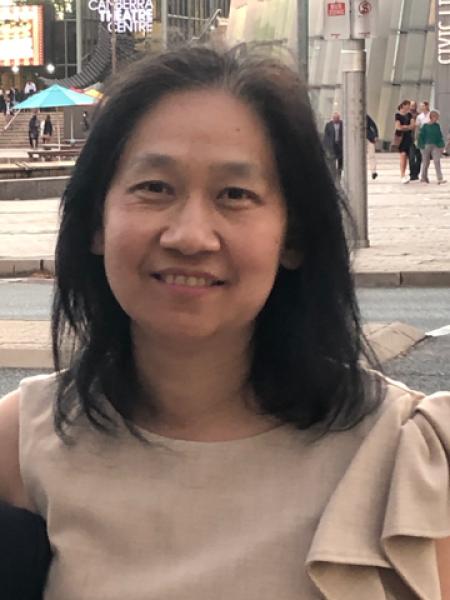Nithiwadee (Wan) Chitravas SFHEA, SIS
Wan graduated with a Bachelor in Teacher Librarianship and Masters (Honours) in Library and Information Science, at Khon Kaen University. Since 1997 Wan has worked as a lecturer and researcher at various universities, including as Assistant Professor (Information Studies) at Suranaree University of Technology, Thailand.
In Wan's current role as Information Access Coordinator, one of her core responsibilities is providing information and digital literacy support. This includes designing and providing training sessions for students, academics, and library staff; publishing materials; and developing subject guides. Wan regularly delivers learning activities such as discovery sessions, in-curriculum sessions and research consultation. These activities help library users navigate the wealth of information available through the library collections and develop effective search strategies.
Wan prioritises collaboration and engagement with academics, staff, and students, in order to strengthen the value of our education.
Wan's philosophy on education can be summed up with the following statement:
"The best teacher aims not to teach at all"
'I heard this statement when I started working as a junior lecturer over 20 years ago. I attended the intensive workshop called Know How to Learn and Learn How to Know, which focused on giving students the ability to learn how to learn by themselves. To be a good teacher, you must guide students to learn until they are able to teach themselves. It is not about the teacher teaching; it is all about the students learning. For the library, it is about client focused services. For the teaching, it is about student-centred learning, not teacher-centred learning. In some cases, not to teach at all couldn't apply.
In 1998, Thai King Rama IX said, "Don't give them fish but give them a fishing rod and teach them how to fish". I apply this when I train my staff or design my training sessions. If students require books for their essay, I will let them do the search and guide them along the way. Advise but do not direct - observe their learning styles and adjust your teaching. You would love to see their eye when they can catch their own first fish!".'
- Wan Chitravas
Committee memberships
